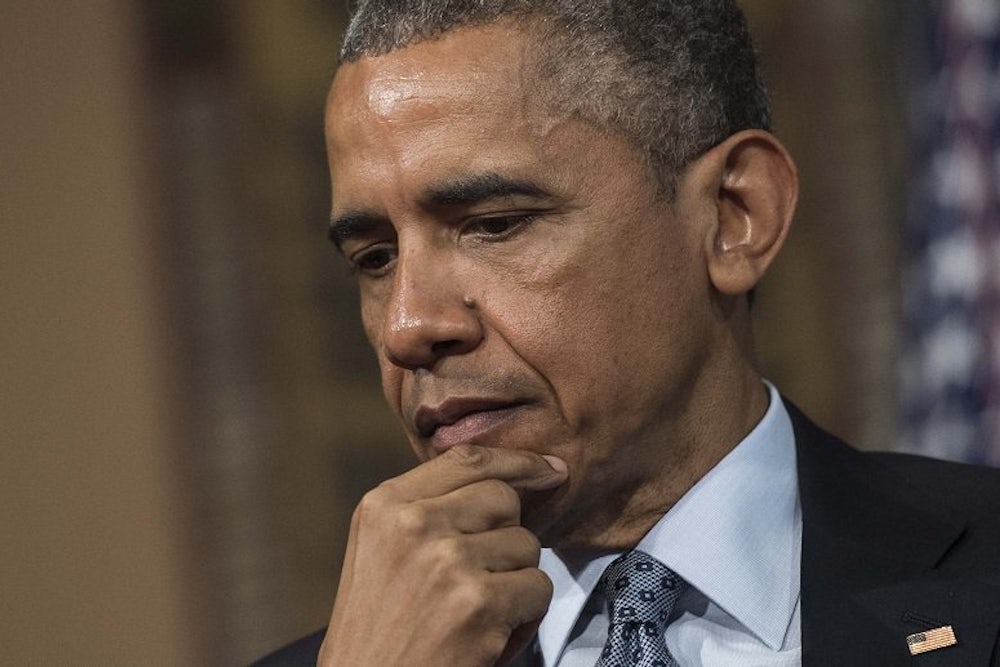On Wednesday, Senate Democrats and Republicans reached an agreement on a bill to give President Barack Obama “fast-track” authority that is key to the completion of the Trans Pacific Partnership (TPP). While this is an important victory for Obama in his quest to pass the trade deal, “fast-track” must still pass the House—and that’s where it’s most at risk.
Fast-track, also known as trade promotion authority (TPA), prevents lawmakers from amending the trade agreement and limits Congress to just an up-or-down vote on it. It allows the U.S. to speak with one voice and gives our negotiating partners confidence that Congress won’t change the deal after it’s been agreed upon. In other words, without TPA, the Obama administration would almost certainly be unable to complete the TPP.
That's why labor and progressive groups, which oppose the deal, have made a big push over the past month to convince Democratic lawmakers to block the fast-track legislation. They succeeded on Tuesday, when Senate Democrats, with the exception of Delaware’s Tom Carper, filibustered it.
Much of the media oversold the news. "Senate Democrats Foil Obama on Asia Trade Deal," declared The New York Times. "Democrats hand Obama a stinging defeat on trade deal," said The Washington Post. Others called it a "setback," or even a "loss."
Hardly. Eight Senate Democrats had opposed the legislation not because they don’t want to give the president “fast-track” authority but because they wanted Senate Majority Leader Mitch McConnell to bring up three other bills along with TPA: a bill to provide benefits to workers harmed by trade deals, a trade enforcement measure that includes a provision to crack down on currency manipulation, and a bill to give trade preferences to sub-Saharan African countries. McConnell only brought up the first of those three bills and Democrats filibustered TPA in response.
One day later, on Wednesday, the two sides have reached a deal. Congress will vote on all four bills on Thursday, starting with the trade enforcement bill on currency manipulation. That legislation is expected to pass the Senate but has an uncertain future in the House. If it does reach the president’s desk, he will almost certainly veto it, as the inclusion of a currency chapter in the TPP would blow up the deal. It’s very unlikely Congress will have the votes to override that veto, meaning even in the best case scenario for progressive groups, Wednesday’s deal won’t force the White House to include the currency chapter in the TPP.
A bigger unknown is whether the “fast-track” bill can pass the House. Few House Democrats support it and many tea party Republicans oppose giving the president any additional power. It’s not yet clear if House Speaker John Boehner will allow a vote on the Senate’s currency manipulation bill or if more House Democrats would be inclined to support TPA if they get such a vote.
Obama has spent an unusual amount of time lobbying congressional Democrats to pass “fast-track.” On Tuesday night, he reportedly talked to Senator Ron Wyden, the ranking member of the Senate Finance Committee, and other pro-trade Democrats and urged them to drop their demand that the president sign the currency manipulation bill into law. Now that he succeeded there, the president can turn his attention to the House, where the opposition is even greater. Only if he fails to convince enough congressman can we call it, definitively, a loss.
